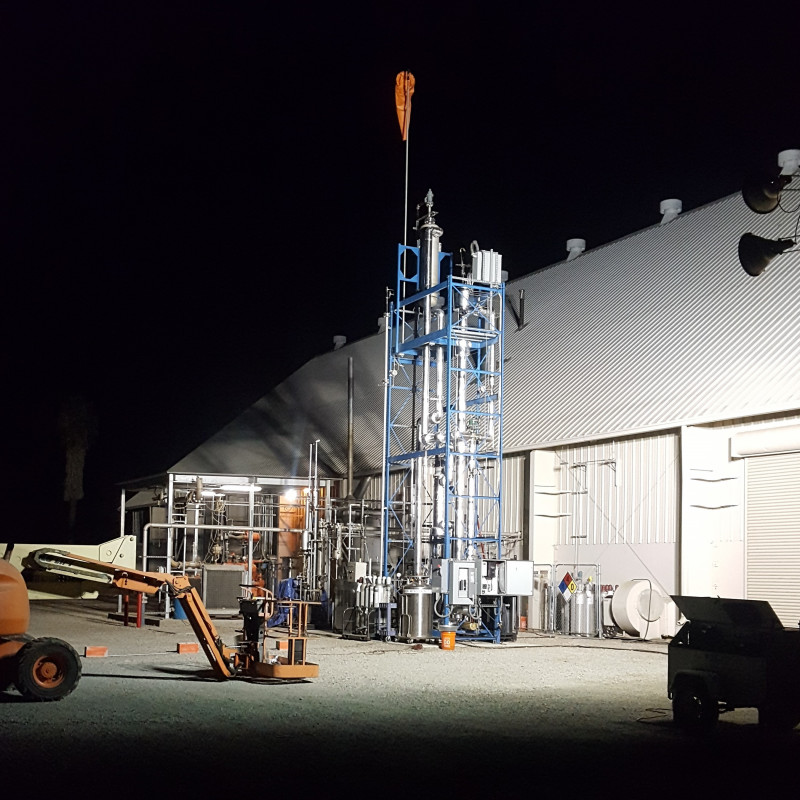COMET-Programme
The strategic objectives of COMET are: developing new expertise by initiating and supporting long-term research co-operations between science and industry in top-level research, and extablishing and securing the technological leadership of companies. By advancing and bundling exting strengths and by integrating international research expertise Austria is to be strengthened as a research location for the long term.
The competence center BEST - Bioenergy and Sustainable Technologies GmbH is funded by BMIMI, BMWET and the federal states Vienna, Lower Austria und Styria within the scope of COMET - Competence Centers for Excellent Technologies. The program COMET is managed by the FFG.
As a link between academic research and industrial technology development, our vision is to develop and demonstrate sustainable and circular biorefinery processes and technologies for producing green gases, green liquid fuels, and green products, all of which will support the transition to a climate-neutral, zero-fossil-carbon economy. Consequently, the resource basis will be extended to include organic residues, wastes, and carbon dioxide. Conversion technologies will be enhanced or redesigned to ensure their efficient and economical operation, and to allow the value cycles based on new feedstocks to be integrated into the system. By using our excellent experimental facilities, ranging from lab to pilot and demonstration scale plants, our goal is to conduct applied research of the highest scientific quality.
We apply advanced digital methods for technology development, and for the basic automation, optimization, and monitoring of the operation of individual technologies and entire plants. With the help of holistic and technology-neutral planning tools, we ensure that biorefineries and energy supply technologies are optimally integrated into a sustainable, renewable energy system.
WOOD AS FEEDSTOCK FOR THE CHEMICAL INDUSTRY
BEST successfully completed a research project regarding mixed alcohol synthesis
with an international consortium. This is a further step from laboratory towards industry,
to use regional available biomass as feedstock for production of goods for the chemical
industry and of transportation fuel.
BIOENERGY 2020+ is working since 2009 on advanced conversion technologies to produce chemicals from wood. In Güssing research and development on synthesis are done, aiming for the production of e.g. diesel, kerosene, methane, hydrogen, and alcohols. National Partners are REPOTEC, an experienced biomass power plant engineering company, Vienna University of Technology and Graz University of Technology. In the USA, the conditions for alcohol as fuel blend are beneficial and there is a strong interest in the cooperation on this topic. The related project
opened the US-market for BIOENERGY 2020+, which led to a further internationalization
of the research center.
The process in a nutshell: Wood gas is conditioned, compressed and fed into the synthesis reactor. A special catalyst, which is developed and provided by the partner Albemarle, is used. This catalyst is widely resistant against sulfur and other catalyst-poisons and therefore ensures the long-term operation stability of the process at high conversion rates. The outlet stream from the synthesis reactor is cooled, the alcohols are condensed and can be separated as liquid product.
Successful Scale-Up-Demonstration BIOENERGY 2020+ operates a lab-scale mixed alcohol unit with real wood gas. Wood gas is converted to a mixture of alcohols, this process is therefore called mixed alcohol synthesis.
The produced alcohols are suitable feedstock for chemical industry and transportation fuel. In the third mixed-alcohol-synthesis project, BIOENERGY 2020+ achieves a long term testing (1020 hours of operation) and a model based control system. The Californian project partner West Biofuels could successfully demonstrate the scale-up, an optimized pilot unit was build and commissioned. Knowledge about the long-term stability and the influence of the larger scale are important research findings to get the mixed-alcohol-synthesis to industrial use.
The project partners of the international consortium were Albemarle Corporation (the Netherlands/USA), REPOTEC GmbH & Co KG, TU Graz, TU Wien, UC San Diego (California, USA) und West Biofuels (California, USA). The project manager of the two year project was Matthias Binder from BIOENERGY 2020+. The project was funded within the COMET program which is managed by the Austrian Research Promoting Agency (FFG).
Impact and effects
State of the art feedstock for wood gas production is forest wood chips, future feedstock could be any biomass residue or waste. This results in a low carbon footprint and there is no competition between food and fuel.
There are currently negotiations on a follow up project and there is great international interest
to continue.
Matthias Binder: „Our goal is to utilize regional biomass as feedstock for chemicals and fuel. We are proud that, due to the research findings, we are getting closer to achieving this ambitious goal.”
Partner
- Albemarle Corporation
- UC San Diego
- West Biofuels
- REPOTEC GmbH & Co KG
- Technische Universität Wien
- Technische Universität Graz
Contact

Matthias BINDER
matthias.binder@best-research.eu
